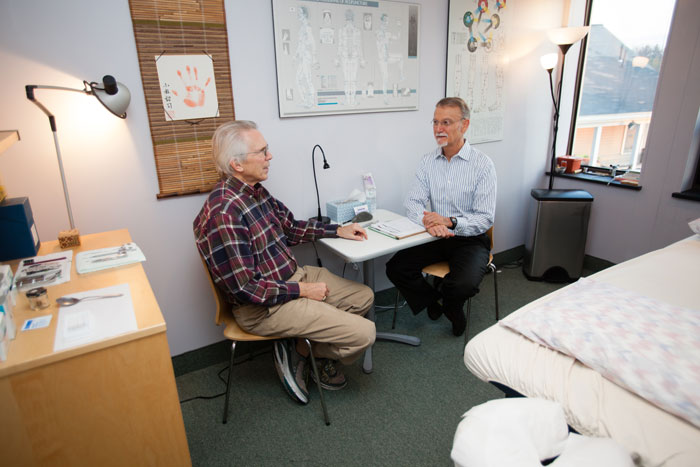
Picture this: you blow a tire on your car and have to take it into the shop. The mechanic replaces your tire. Two days later, your car breaks down because the mechanic didn’t inspect it for other possible issues.
Frustrating, right? Unfortunately, some doctors, because of their specialized focus, miss how all systems are doing. This means that their patient’s overall health may go unchecked—like the mechanic in the story above.
A great mechanic would fix the immediate problem, conduct a brief inspection of the car’s health, and (as needed) fix it or offer suggestions for proper care while it’s in the shop.
In short, that’s what holistic medicine can do for your health!
What does holistic medicine mean?
The American Holistic Health Association defines holistic medicine as “the art and science of healing that addresses the whole person – body, mind, and spirit.”
Healing the body
My practice offers acupuncture and other complementary treatments to heal the body. These therapies are becoming more common, with some 2016 Summer Olympics athletes like Michael Phelps seeking these treatment options.
Healing the mind and spirit
While western medicine has advanced treatments for healing the body, it only takes one grueling 5-hour trip to the emergency room to understand that the spirit can oftentimes be threatened as the body is being healed.
It makes sense, then, that healing the mind and spirit starts with a meaningful patient-practitioner relationship. This relationship is fundamental in Eastern medicine practices and has been shown to have real, measurable results.
In a paper titled “Relieving Pain in America“ published by the Institute of Medicine:
“One factor in the success of a placebo—or any pain treatment, for that matter— is the prescriber’s empathy or skill in communicating with the patient. Evidence suggests that for patients treated with placebo pills, a positive relationship with a practitioner improves outcomes (Kaptchuk et al., 2008) and, in a sense, engages the brain to help in pain control by instilling optimism and confidence. Because placebo use could undermine trust, Kaptchuk and colleagues (2010) told patients they were receiving a placebo, and the treatment still produced statistically significant improvements in terms of mean global improvement scores, reduced symptom severity, and adequate relief at both an 11-day midpoint and 21-day endpoint (Kaptchuk et al., 2010).”
But what do mind and spirit treatment options look like?
In my practice, I provide lifestyle coaching for that purpose. Diet, exercise, and mindfulness are important facets of how you live your life. These lifestyle factors are linked with your health holistically, and improving even one can put you back on the right road towards better health.
Gracey Holistic Health
My practice focuses on addressing these three key aspects of health, and I employ multiple approaches to help my patients holistically. Periodic tune-ups offer an opportunity to check-in with yourself to insure that your systems are running well. As my patients know, that’s why I offer seasonal tune-ups.
So, if you prefer optimal performance then you need to keep yourself well-tuned. On that note, if you think it’s time for a full-body tune-up, I’m your mechanic.
Leave a Reply